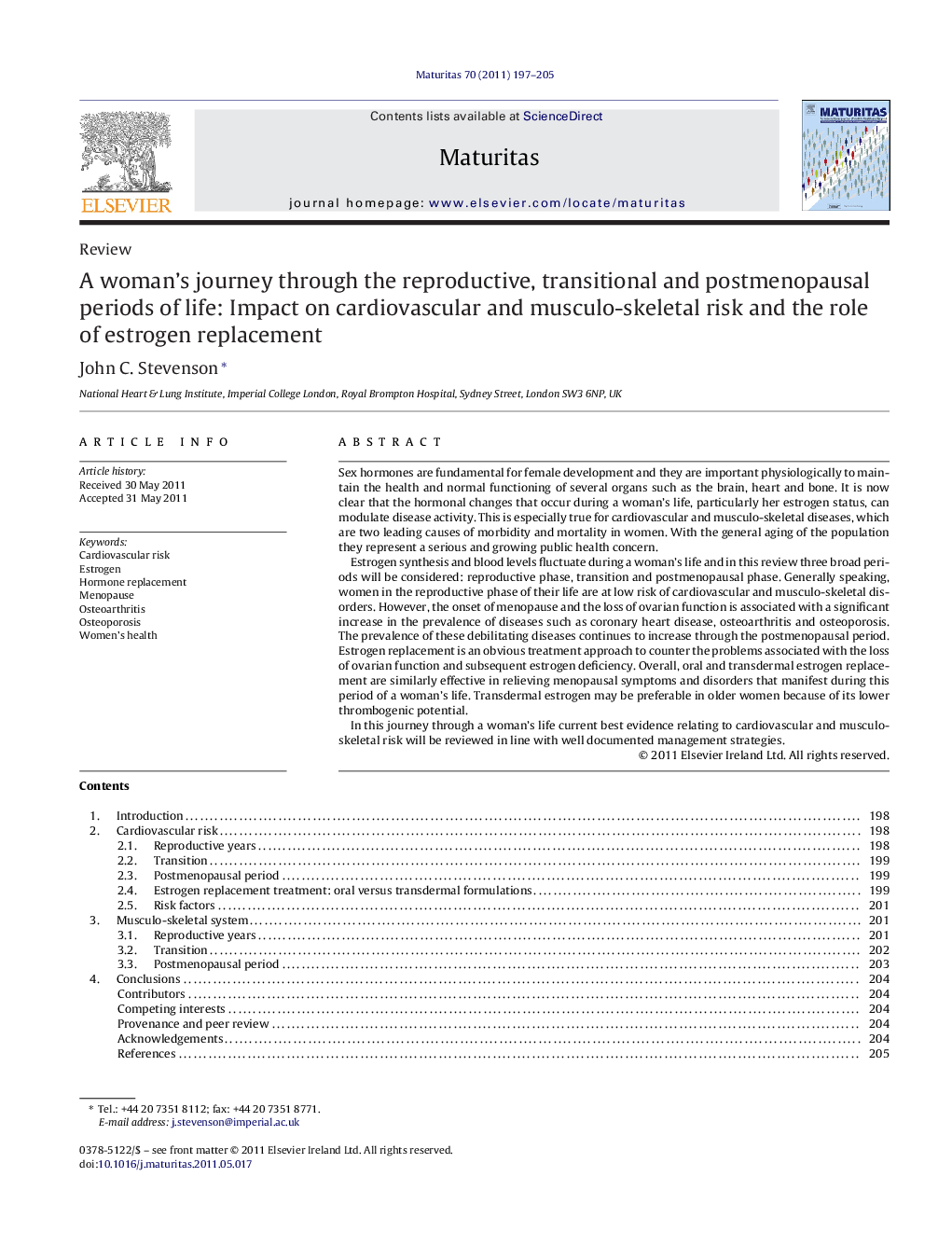| Article ID | Journal | Published Year | Pages | File Type |
|---|---|---|---|---|
| 1917877 | Maturitas | 2011 | 9 Pages |
Sex hormones are fundamental for female development and they are important physiologically to maintain the health and normal functioning of several organs such as the brain, heart and bone. It is now clear that the hormonal changes that occur during a woman's life, particularly her estrogen status, can modulate disease activity. This is especially true for cardiovascular and musculo-skeletal diseases, which are two leading causes of morbidity and mortality in women. With the general aging of the population they represent a serious and growing public health concern.Estrogen synthesis and blood levels fluctuate during a woman's life and in this review three broad periods will be considered: reproductive phase, transition and postmenopausal phase. Generally speaking, women in the reproductive phase of their life are at low risk of cardiovascular and musculo-skeletal disorders. However, the onset of menopause and the loss of ovarian function is associated with a significant increase in the prevalence of diseases such as coronary heart disease, osteoarthritis and osteoporosis. The prevalence of these debilitating diseases continues to increase through the postmenopausal period. Estrogen replacement is an obvious treatment approach to counter the problems associated with the loss of ovarian function and subsequent estrogen deficiency. Overall, oral and transdermal estrogen replacement are similarly effective in relieving menopausal symptoms and disorders that manifest during this period of a woman's life. Transdermal estrogen may be preferable in older women because of its lower thrombogenic potential.In this journey through a woman's life current best evidence relating to cardiovascular and musculo-skeletal risk will be reviewed in line with well documented management strategies.
